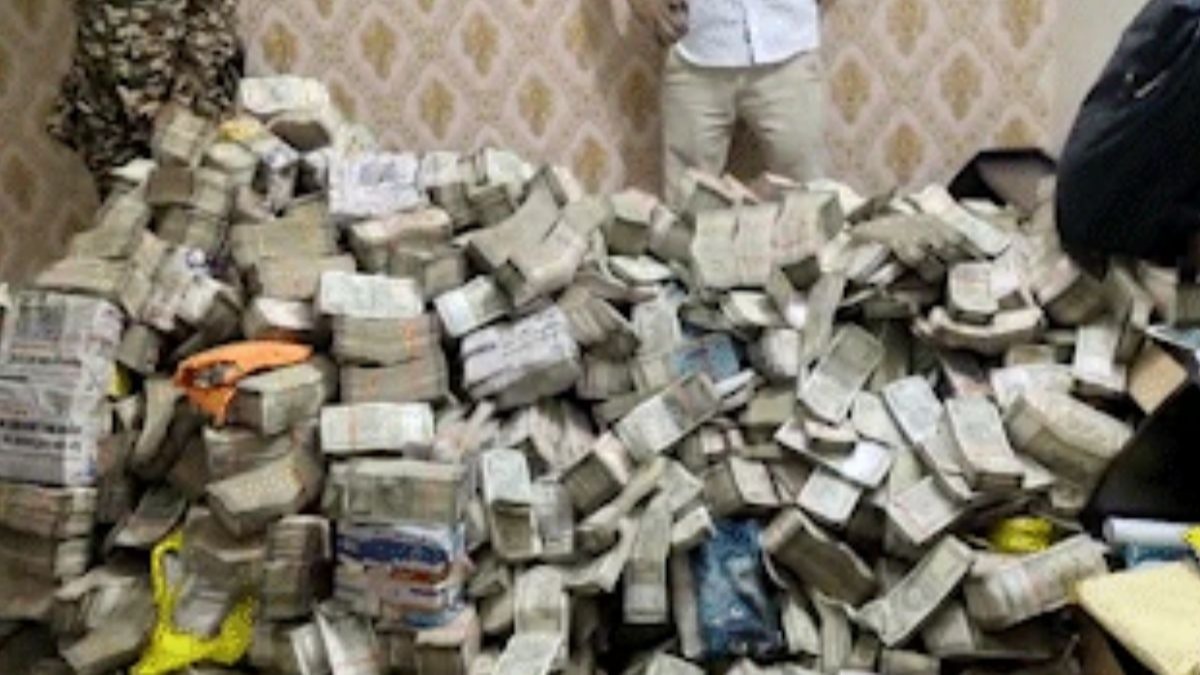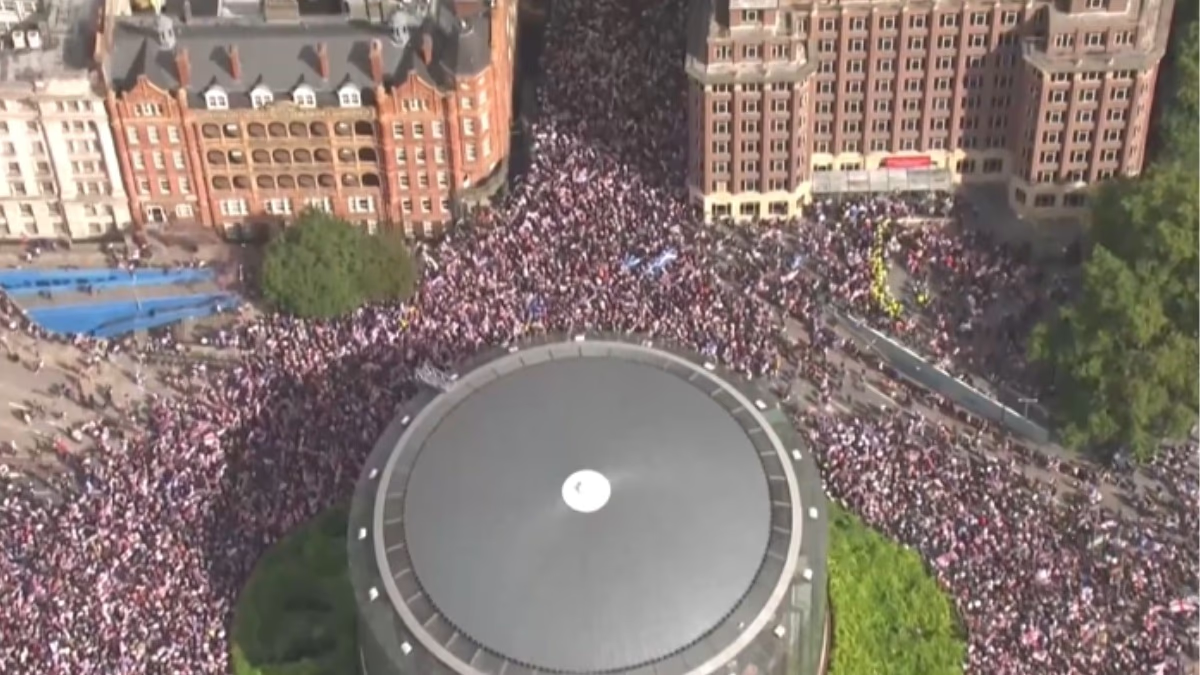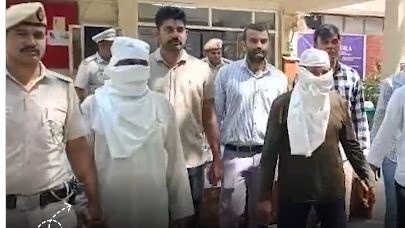The dragnet of the Enforcement Directorate (ED) persists in Jharkhand's capital, Ranchi. Searches are underway at the residence of a house helper employed by Alamgir Alam's personal secretary, Sanjeev Pal. Simultaneously, multiple other locations experience the agency's clampdown.
Thus far, the raids have disclosed a cash haul estimated between 20 to 30 crores, with one location yielding close to three crores seized. The counting is an ongoing affair, with most currency in 500 rupee denominations. The seized assets include jewelry as well.
Why the Raids?
The ED's action links back to a money laundering case tied to Virendra K. Ram, former Chief Engineer of the Jharkhand Rural Development Department, who's been incarcerated over a year.
Detained by the ED last February, accusations loom over Ram for malpractices in executing various departmental schemes. In 2019, a substantial cash stash was recovered from an associate of Ram, sparking a money laundering case based on a complaint from the Jharkhand Anti-Corruption Bureau.
Previously, ED had alleged that Ram obtained criminal income as commissions in return for granting tenders to contractors.
Why is Alamgir Alam Under the Scanner?
Rural Development Minister in Jharkhand, Alam is indirectly connected to the case as the raids include his private secretary's residence. Media agencies report that while they target the house helper's residence, multiple locations are under inspection, including the home of civil engineer Vikas Kumar of the road construction department.
The previous investigation into Virendra Ram revealed that bribe money was channeled to the minister's house. This is the first time Alam's name has emerged, bringing his private secretary Sanjeev Lal into the spotlight as well.
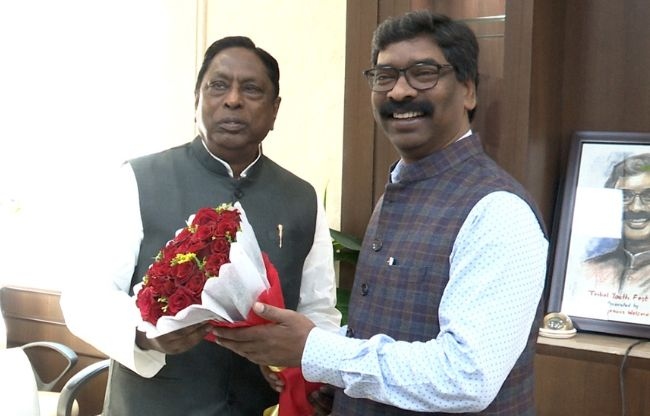
Source: aajtak
Alamgir Alam Disassociates From his Secretary?
Amidst the raids, Alamgir seems to distance himself from his secretary, affirming that Pal previously served other ministers, pointing out his official assignment is merit-based. He suggests withholding comments until ED concludes the investigation.
When 351 Crores Were Seized
The Congress appears entangled in the matter with BJP pressing for Minister Alam's detention, conjuring the 300+ crore raid at Congressman Dheeraj Sahu's premises previously.
Last year, the Income Tax Department uncovered 351 crores in a historic raid on Sahu's properties. The mammoth sum was handled with 40 counting machines, packed into 200 bags and trunks for transportation.
Reportedly, this wealth was amassed from cash sales of indigenous liquor—a century-aligned family business that dominates liquor shops in Odisha and Jharkhand.
Despite the colossal find, Sahu professed the amounts were familial, disassociated from Congress. Nevertheless, this February, he reportedly settled taxes on 150 crores from the total, readying to file returns on the remainder the next year.
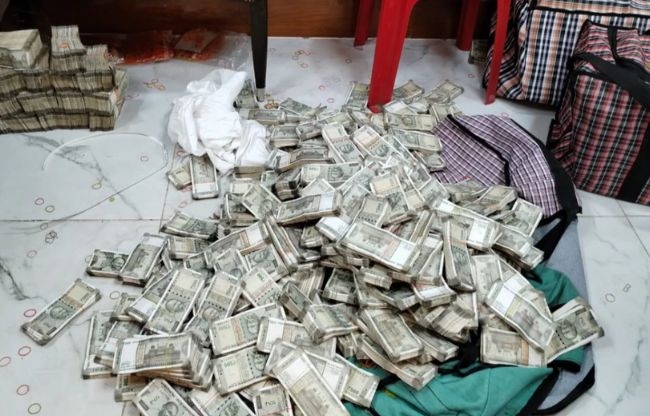
Source: aajtak
What Happens to the Seized Funds?
When ED recovers money, the accused must justify its source. If unable, ED confiscates it. Recorded in detail, the cash, once sealed, is deposited with a government bank. If the accused is convicted, the sum is turned over as 'public money'; if acquitted, it is returned.
Conversely, when the Income Tax Department seizes cash, it's banked, assessed, and taxes are levied. Following tax deposits, the money is reimbursed.
